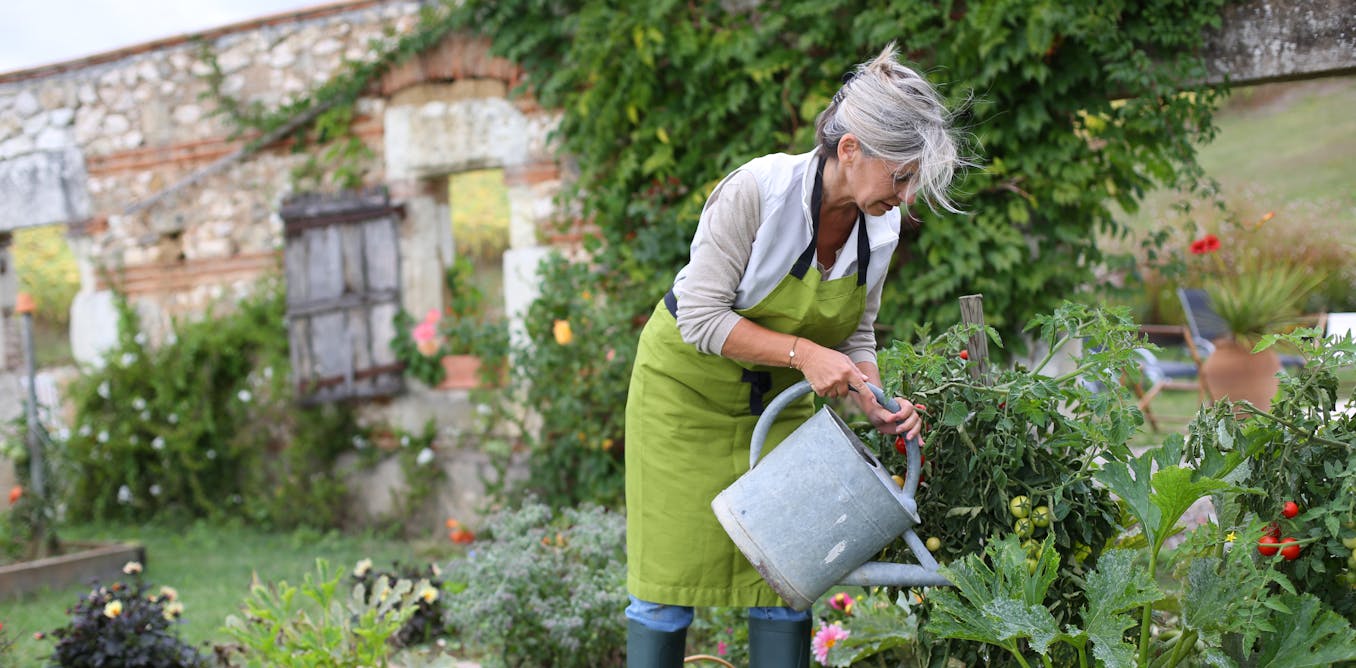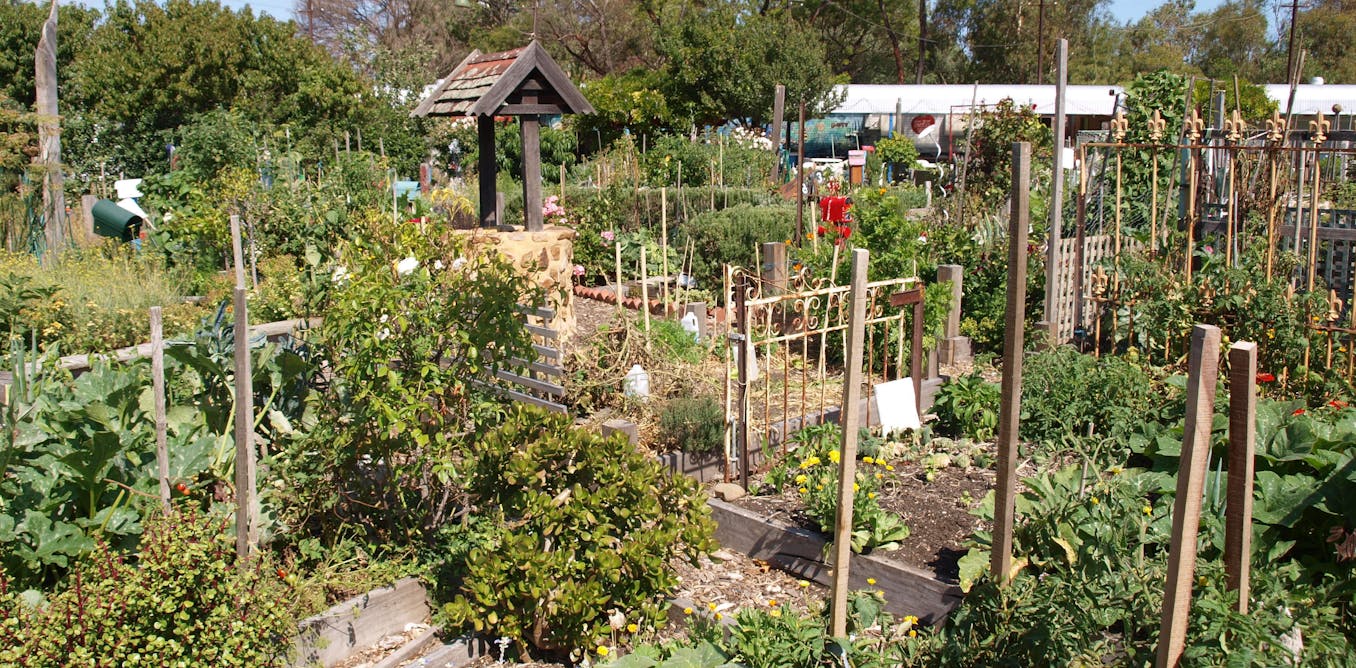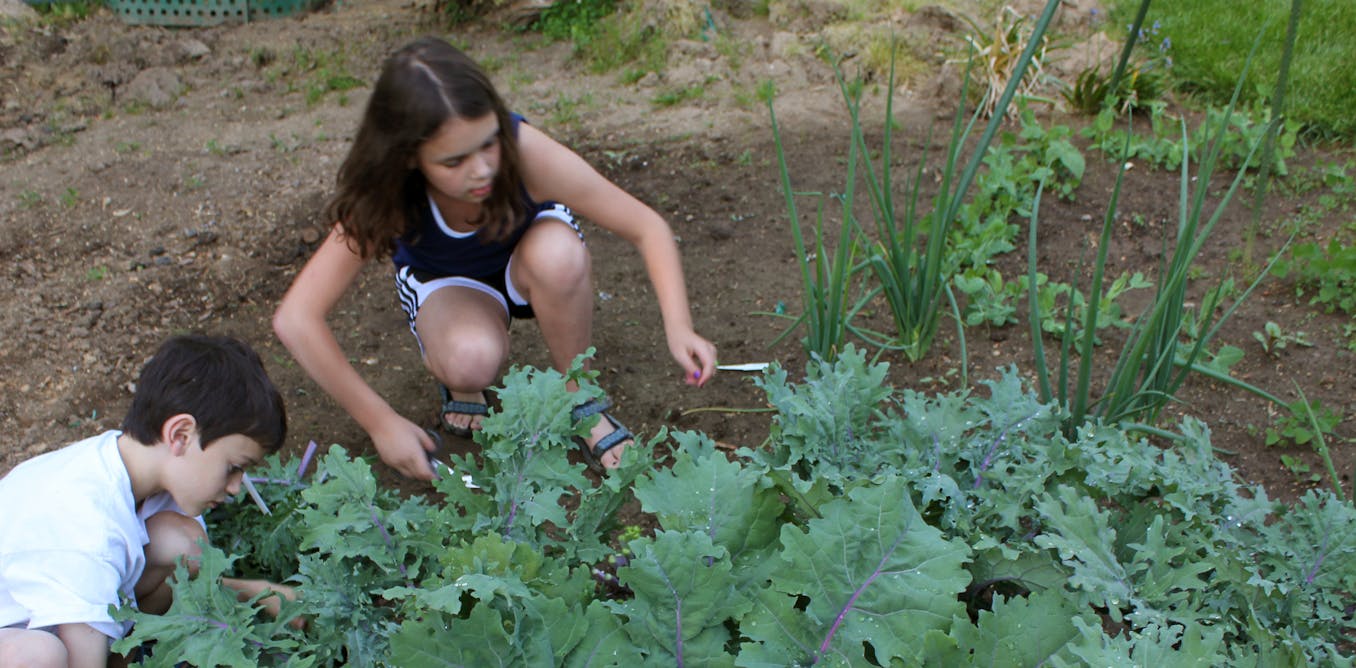
Do youngsters who develop kale eat kale?
[ad_1]
It’s back-to-school time inside the US, and for fairly a number of kids all by means of the nation, it’s furthermore time to get as soon as extra into the varsity yard.
For a complete lot of years, educators and philosophers have argued that garden-based studying improves kids’s intelligence and boosts their private successfully being. At the moment, factors associated to childhood weight points and youthful folks’s disconnection from nature have led to a revitalized curiosity all through the matter.
Tens of 1000’s of American colleges have some kind of college yard. Many are positioned on college grounds and others are run by exterior neighborhood companions. Most are related to the college’s curriculum. As an illustration, seeds are utilized in science class to clarify plant biology, fruits are utilized in social evaluation to level out world geography and the harvest is utilized in math to search out weights and measures. Some even incorporate meals from the yard into the varsity lunch.
As a researcher and an activist, I’ve spent the higher a part of the final word decade working to advertise a healthful, equitable and sustainable meals system. Via this course of, I’ve heard daring claims made concerning the facility of garden-based studying to fulfill these challenges.
Given the keenness that surrounds garden-based studying inside the present day, it’s price taking inventory of their regular impacts: Do college gardens really enhance the schooling and successfully being of youthful folks?
Selling college gardens
School gardens have develop to be a favourite technique of distinguished advocates all through the “Good Meals Motion.” Each celeb chef Jamie Oliver and First Girl Michelle Obama have been vocal supporters.
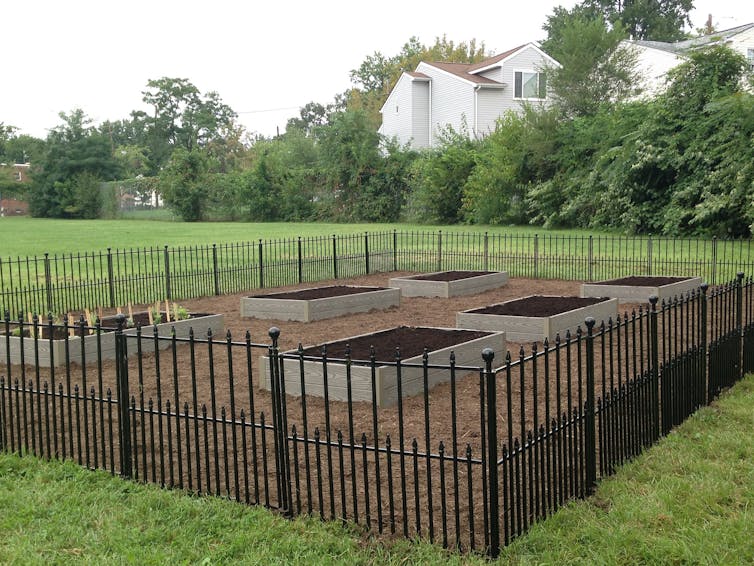
U.S. Division of Agriculture
Nonprofit and grassroots teams, who see these gardens as a manner to offer present produce for the meals insecure, have strong partnerships with native colleges. Then there are service-based teams, identical to FoodCorps, whose members spend one 12 months in a low-income neighborhood to assist organize gardens and develop completely totally different college meals initiatives.
Philanthropic organizations an identical to the American Coronary coronary coronary heart Affiliation have furthermore sponsored the occasion of an entire bunch of present college yard plots.
Taken collectively, upwards of 25 p.c of public elementary colleges inside the US embody some kind of garden-based studying. School yard duties are positioned in each house of the nation and serve college school college students of all ages, ethnic backgrounds and socioeconomic courses.
Transforming youngsters lives by gardens?
Advocates argue that gardening helps youngsters make further healthful consuming decisions. Because of the self-proclaimed “Gangsta Gardener” Ron Finley put it in his widespread TED Converse,
“If youngsters develop kale, youngsters eat kale.”
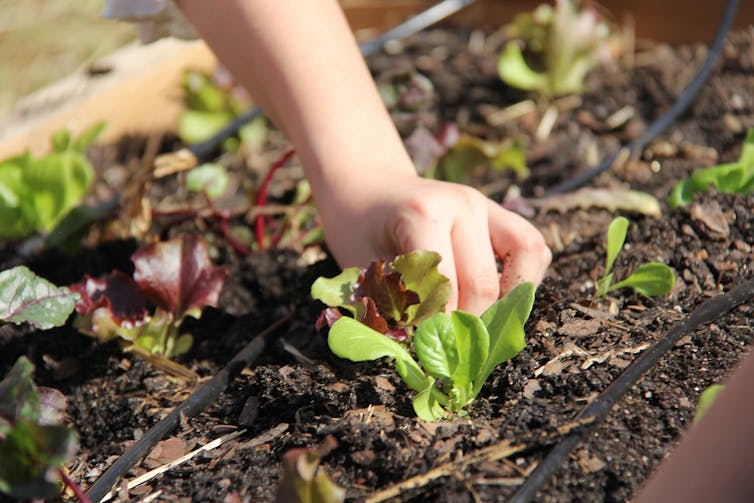
UGA School of Ag & Environmental Sciences – OCCS, CC BY-NC
Many proponents go even further, suggesting that garden-based studying can encourage quite a lot of healthful modifications for all of the household, serving to to reverse the so-called weight points epidemic.
Others, like Edible Schoolyard founder Alice Waters, argue which have all through the yard can have a transformative affect on a baby’s worldview, making sustainability “the lens by which they see the world.”
Positive, gardens might help
There is also an excessive amount of anecdotal proof to recommend that garden-based studying does yield instructional, dietary, ecological and social advantages.
For example, a number of printed evaluation have confirmed that garden-based studying can improve college school college students’ science info and healthful meals behaviors. Completely totally different analysis has confirmed that garden-based studying might help college school college students bigger determine a variety of types of greens together with result in additional favorable opinions on consuming greens.
Usually, qualitative case evaluation of garden-based studying have been encouraging, offering narratives of life-changing experiences for teenagers and lecturers alike.

RubyDW, CC BY
Nonetheless, in relation to truly rising the quantity of present meals eaten by youthful folks, bettering their successfully being outcomes or shaping their regular environmental attitudes, quantitative outcomes have tended to level modest constructive components at greatest. A few of most likely essentially the most terribly developed college yard packages have been capable of improve pupil vegetable consumption by a number of serving per day. However the analysis has not been capable of present whether or not or not or not these constructive components are maintained over time.
A scarcity of definitive proof has led some critics to argue that school gardens are merely not undoubtedly effectively well worth the time and funding, notably for lower-income college school college students who could also be concentrating on additional normal school prep evaluation.
The social critic Caitlin Flanagan has gone as far as to say that yard packages are a distraction which can create a “everlasting, uneducated underclass.”
There are often not any magic carrots
There may be not a doubt that the flexibleness of garden-based studying is often overstated.
Notably when describing yard duties in low-income neighborhoods and communities of coloration, widespread narratives suggest {{{that a}}} teenager’s time all through the yard will rescue her from a lifetime of poverty and steady illness.
I title this the “magic carrot” approach to garden-based studying. However as everyone is conscious of, there are often not any magic carrots rising all through the school yard.
Gardens alone is not going to remove successfully being disparities, shut the tutorial achievement hole, restore unemployment or therapy environmental injustice.
When is a yard worthwhile?
For gardens to effectively promote studying and successfully being, they need to be supported and bolstered by the neighborhood as a complete. Surveys of school yard practitioners present that yard packages have important potential to boost college and neighborhood life – nonetheless provided that sure circumstances are met.
Notably, college gardens are most worthwhile after they don’t seem to be held afloat by a single devoted coach. As an alternative, a number of concerned stakeholders would possibly make certain {{that a}} yard doesn’t dry up after solely a season or two.
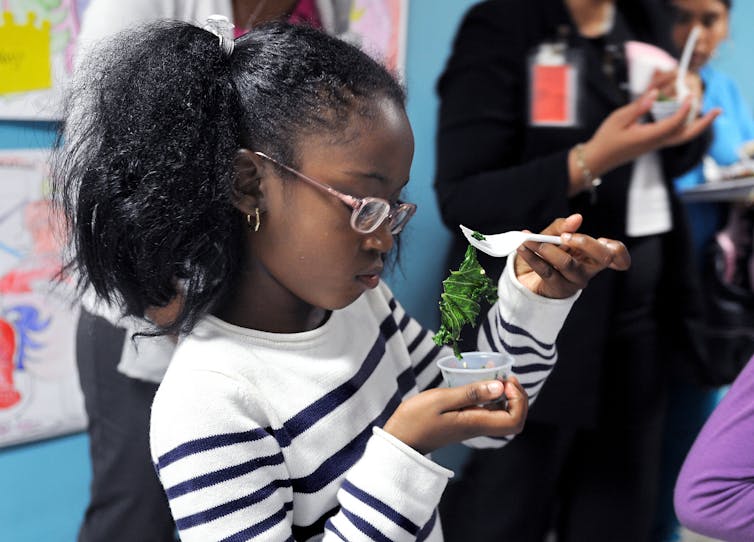
U.S. Division of Agriculture, CC BY
For example, participation from directors, households and neighborhood companions can flip a college yard correct proper right into a dynamic and sustainable neighborhood hub.
Many skilled practitioners have furthermore confirmed that garden-based studying is additional extraordinarily environment friendly when its curriculum reveals the cultural backgrounds of the youthful folks it serves. When kids of Mexican descent develop indigenous types of corn, or when African-American youth domesticate collard greens, the technique of rising meals can develop to be a method of self-discovery and cultural celebration.
In a number of phrases, if youngsters develop kale, they may eat kale, nonetheless provided that kale is obtainable of their neighborhood, if their household can afford to purchase kale and inside the event that they assume consuming kale is expounded to their customized and way of life.
Creating priceless inexperienced dwelling
As my very private analysis has highlighted, there are organizations and colleges all by means of the nation that incorporate garden-based studying into broader actions for social, environmental and meals justice.
These teams acknowledge that school gardens alone is not going to magically restore the issues our nation faces. However as a part of a long-term motion to spice up neighborhood successfully being, college gardens can present a platform for experiential schooling, create priceless inexperienced dwelling and foster a method of empowerment all through the minds and our our our bodies of youthful Of us.
[ad_2]
